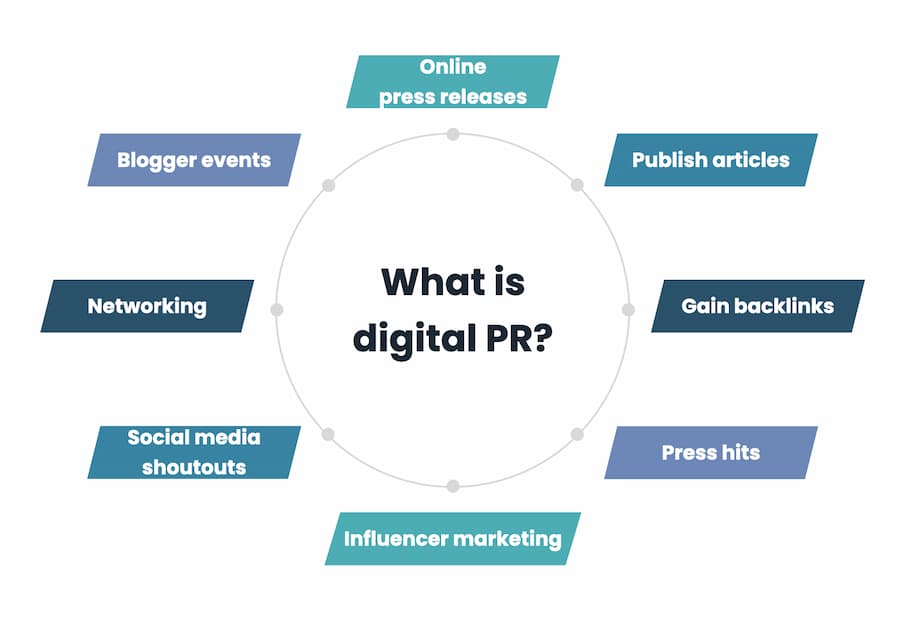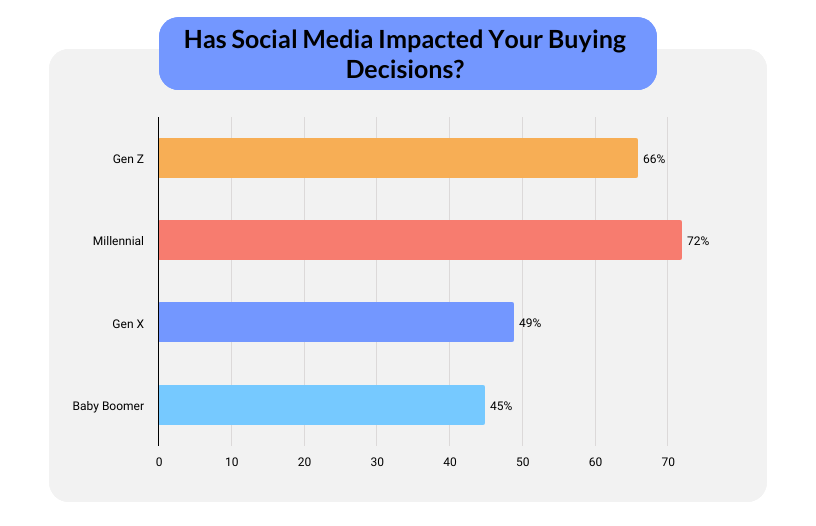What Is Digital PR? Public Relations in the New Digital Environment
Digital PR (public relations) leverages online media and builds relationships with online journalists, bloggers, and influencers in order to amplify online brand messaging.
The internet has never been lacking buzzwords. A recent rise of interest in digital PR has critics, fans, and link-selling conmen struggling to agree on what “digital PR” really means. As you can imagine, each party pushes its own focus and corresponding language, creating a diffuse concept.

At Reputation X, we’ve been concerning ourselves with digital PR since 2005, well before others started arguing about what digital PR really is. Since our inception, we’ve worked with the following definition for digital PR:
Digital PR leverages online media and builds relationships with online journalists, bloggers, and influencers in order to amplify online brand messaging.
Table of Contents:
Understanding Digital PR
Digital PR is an excellent supplement to other SEO and marketing work you are doing to improve your online reputation. One of the main outcomes of a successful reputation strategy is improved brand awareness. The tactics described in this article are all designed to not only make people aware of your brand but to show it in a positive light.
Here are a few benefits that digital PR can bring to your business:
- Build brand awareness
- Improve SEO
- Boost website traffic
- Establish authority online
- Increase sales
- Improve online reputation

Digital PR has evolved significantly from traditional public relations practices, adapting to where interaction and visibility are paramount. Initially dominated by press releases aimed at media outlets, traditional PR focused on a one-way flow of information. However, the rise of the internet introduced dynamic two-way communications, enabling direct interactions through online press rooms and email distributions, enhancing immediate global reach with multimedia integration.
The transformation was further accelerated by social media platforms like Facebook and Twitter, shifting the focus from mere media relations to direct audience engagement. This shift not only democratized information dissemination but also necessitated a new approach where brands engage in real-time conversations, manage crisis effectively, and collaborate with influencers to amplify their reach.
In fact, social media has become a dominating factor in what drives consumers to make purchases. Surveys reveal that 66% of Gen Z, 72% of millennials, 49% of Gen X, and 45% of baby boomers attribute their buying decisions to social media interactions.

Moreover, digital PR is not solely about media outreach but also about enhancing a brand’s search engine optimization (SEO). By securing valuable backlinks from reputable sources and creating shareable content, the strategies directly contribute to improving a brand’s online visibility and search engine rankings.
This symbiotic relationship with SEO practices ensures that digital PR efforts are not only about audience engagement but also about driving measurable traffic and improving online presence. Thus, it represents a holistic approach to brand communication, emphasizing the importance of both reputation management and strategic online engagement.
Key Components of a Successful Digital PR Strategy
Content Marketing and Creation
Effective digital PR relies heavily on quality content that resonates with the target audience. By crafting and disseminating press releases, engaging blog posts, and compelling infographics, brands enhance their visibility and authority. This content must be optimized for SEO to improve online presence and ensure it reaches the intended audience.
Social Media Integration
Social media amplifies digital PR efforts by extending the reach of content and fostering direct engagement with consumers. Platforms like Twitter and Facebook allow for real-time updates and interactions, which are crucial for live events and announcements. Instagram and Pinterest offer visual storytelling opportunities that can significantly boost user engagement and brand awareness.
Building Relationships with Influencers and Bloggers
A successful strategy involves collaborating with influencers and bloggers who can authentically convey the brand’s message to their followers. These partnerships are essential for amplifying content reach, as influencers’ endorsements can influence consumer behavior and enhance brand reputation.
Effective Use of Press Releases
Digital press releases should integrate rich media to make the content more engaging and shareable. They must be strategically distributed to maximize reach and impact, using analytics tools to track performance and adapt strategies accordingly. Press releases continue to be a critical tool in managing public perception and gaining media coverage.
Measuring the Success of Digital PR Campaigns
Key Performance Indicators (KPIs)
To effectively measure the success of digital PR campaigns, it is crucial to establish and monitor specific Key Performance Indicators (KPIs). These include website traffic, social media engagement, conversion rates, and media coverage. By analyzing these metrics, businesses can assess which strategies are yielding the best results and where adjustments may be necessary to optimize performance.
Tools and Techniques for Tracking and Analysis
Utilizing advanced tools like Google Analytics, BuzzSumo, and Moz is essential for tracking the effectiveness of digital PR efforts. These platforms provide insights into website traffic patterns, social media interactions, and the quality of backlinks. Additionally, social listening tools can capture real-time data on brand mentions and audience sentiment, enabling timely adjustments to PR strategies.
Adjusting Strategies Based on Data
Data-driven insights allow for the refinement of digital PR strategies. Regular monitoring of KPIs helps identify successful tactics and areas needing improvement. For instance, if a campaign shows high engagement but low conversion rates, strategies may be adjusted to enhance user interaction and ultimately boost conversions. Sharing these insights across teams ensures that all aspects of digital marketing are aligned with the overarching business objectives.
Case Studies: Successful Digital PR in Action
Brand Visibility and Awareness
Digital PR campaigns significantly enhance brand visibility and awareness. For instance, a healthcare IT company leveraged digital PR to secure over 200 high-quality backlinks from top-tier publications like NBC News and CNN, leading to a substantial increase in domain authority and online presence.
Reputation Management
Effective PR also plays a crucial role in reputation management. A travel-related campaign for a real estate financing company not only increased website traffic by 48% but also received nearly 30,000 social media engagements, boosting online credibility and consumer trust significantly.
SEO Improvements and Backlink Quality
SEO improvements are integral to digital PR success. High-authority links from respected media outlets signal to search engines like Google that the website is a trusted citation, which enhances search rankings. For example, campaigns that focus on creating news-first, original research can result in robust backlink profiles that improve visibility and authority.
Sales and Lead Generation
Lastly, PR directly impacts sales and lead generation. A campaign for a transformation company resulted in 490 qualified leads and 87 closed-won deals through optimized LinkedIn ad campaigns and strategic content distribution, demonstrating the power of targeted digital PR strategies in driving business outcomes.
FAQs
How to Implement a Successful Digital PR Strategy?
To execute an effective PR strategy, start by understanding your target audience through detailed personas. Then, craft content that resonates with these insights. Next, compile a media list and develop an irresistible pitch for journalists. Continue to enhance your credibility and brand awareness while consistently measuring your success with clear objectives and key performance indicators (KPIs).
What Constitutes an Effective Digital PR Campaign?
An impactful digital PR campaign shares similarities with traditional PR by aiming to boost brand awareness and visibility. However, it distinguishes itself through the utilization of online platforms and channels, maximizing these avenues to engage target audiences and foster deeper relationships.
Can You Explain Digital PR?
Digital PR involves promoting a company through various online mediums such as blogs, websites, and social media platforms. The primary objectives of a digital PR campaign are to increase a brand’s online mentions, secure backlinks, and enhance overall brand visibility, which are increasingly vital for a brand’s success in the digital age.
How Does SEO Differ from Digital PR?
SEO and PR both play crucial roles in content marketing and storytelling for a brand. SEO is focused on enhancing a business’s visibility on search engines to improve rankings, generate leads, and increase revenue. On the other hand, digital PR is a strategy aimed at boosting a brand’s online presence through promotional activities.
About the author
Kent Campbell is the chief strategist for Reputation X, a San Francisco Bay Area-based online reputation management services firm. He has over 15 years of experience with SEO, Wikipedia editing, review management, and online reputation strategy. Kent has helped celebrities, leaders, executives, and marketing professionals improve the way they are seen online. Kent writes about reputation, SEO, Wikipedia, and PR-related topics.
–
